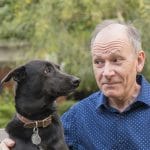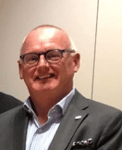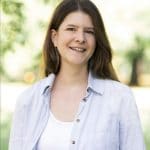Keynote: Clive Wynne
Title: The Secret of Dogs’ Success in a Human-Dominated World
Abstract: Although dogs are very new creations in an evolutionary sense, nonetheless they have certain skills which are not found in any other species. I will discuss the controversy that has arisen in the last two decades as to what exactly the unique skills of dogs are. I will show how the unique skill of dogs is their ability to form strong emotional bonds with other species rather than in any more intellectual domain. I will show how those arose in the modification of bond-formation abilities that are present in all animals, combined with some possible unique mutations.
Bio: Clive D.L. Wynne, Ph.D., is the founding director of the Canine Science Collaboratory at Arizona State University. Previously, he founded the Canine Cognition and Behavior Laboratory at the University of Florida, the first lab of its kind in the United States. A native of the United Kingdom, Wynne has lived and worked in Germany and Australia as well as the United States and gives frequent talks to audiences around the world. The author of several previous academic books and of more than 100 peer-reviewed scientific journal articles that count among the most highly cited studies on dog psychology, he has also published pieces in widely read outlets such as the Washington Post, New Scientist, and the New York Times, and has appeared in several television documentaries about dog science on Netflix, PBS, and the BBC. His latest book, Dog is Love: Why and How Your Dog Loves You, was published by Houghton Mifflin Harcourt in September 2019. He lives in Tempe, Arizona.
Keynote: Simone Pollo
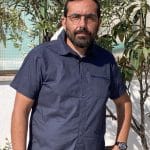 Title: Animal advocacy in a democratic society
Title: Animal advocacy in a democratic society
Abstract: Public debate and philosophical enquiry on the legal and moral status of non human animals is a fact of contemporary societies. Todays ethical and political discussion on animals and the need to transform human interactions with them are rooted in some processes and philosophical discussions starting with the Enlightenment. During the Enlightenment a turn in ethics happened: emotions, sentiments and sympathy became relevant for ethics and politics. This turn triggered reflections and social processes aimed at expanding the circle of moral and legal inclusion to non human animals. As a matter of fact, contemporary attention to non human animals has its roots in the same processes that led to contemporary liberal democracies. Moving from this premise I will try to show that animal advocacy is an essential part for the life of today’s democracies. Furthermore, I will highlight how the link between animal advocacy and democracy demands reforms in all the ways humans interact with animals both as individuals and as society.
Bio: Simone Pollo is Associate Professor of Moral Philosophy at the Department of Philosophy of Sapienza University of Rome, where he teaches “Ethics and Life Sciences” and “Bioethics”. He has also teaching appointments at the University of Turin, the Universitat Autònoma of Barcelona e the University Kardinal Stefan Wyszyński of Warsaw. His research interests are the evolutionary origins of ethics, the philosophy of biology and the philosophy of science (with a special interest in ethology and animal cognition), the relations between science and society, animal ethics and environmental ethics. He is the author of four monographs (in Italian). Scegliere chi nasce. L’etica della riproduzione umana fra libertà e responsabilità (Guerini, 2003); La morale della natura (Laterza, 2008); Umani e animali: questioni di etica (Carocci, 2016); Manifesto per un animalismo democratico (Carocci, 2021; Spanish translation forthcoming). With Augusto Vitale co-edited Human/Animal Relationships in Transformation. Scientific, Moral and Legal Perspectives (Pagrave, 2022)
Keynote: Jan Vaarten
Title: Complementing One Health and One Welfare perspectives
Abstract: It was only after the publication of Charles Darwin’s evolution theory that people began to recognize the very close relation we have with other creatures and total ecosystem. More and more we become aware that the health of people, animals and ecosystems are strongly connected through what is called the One Health concept. This is the integrated, unifying approach that aims to sustainably balance and optimize the health of people, animals and ecosystems.
A good example of a One Health topic is the Covid-19 pandemic, caused by a virus that originated in animals and then spread to humans. It could emerge in a context where humans encroached on or manipulated natural environments.
For people, good health is defined as a state of complete physical, mental and social well-being and not merely the absence of disease. In fact the same applies to animals. Although endowing animals with emotions has long been a taboo, the notion that animals can suffer emotionally is becoming better understood and accepted.
This leads to a new concept of One Welfare, describing the interrelationships between animal welfare, human wellbeing and the environment. Where health is a significant component of good welfare, wellbeing is important for optimal health. Complementing One Health and One Welfare perspectives will help to secure equity among the three domains. It points the way to an ethic of respect for all life including the way different forms of life are interdependent. It will help to ensure equality and bring together ecosystems, animals and people.
Bio: After graduation from the Veterinary Faculty of the University of Utrecht (The Netherlands) Jan Vaarten, DVM, started his veterinary career in a mixed practice. He then joined the pharmaceutical industry where he worked on the development of vaccines. Later on he worked as policy officer for the Dutch Ministry of Agriculture and for the Royal Netherlands Veterinary Association.
From 2003 until 2021 Jan Vaarten was Executive Director of the Federation of Veterinarians of Europe (FVE), a federation of 49 veterinary professional organisations in 41 European countries, representing the European veterinary profession. After his retirement in 2021 he remained involved in the FVE as senior project officer.
From 2010 until 2020, Jan Vaarten was Executive Secretary of the World Veterinary Association (WVA), the internationally recognized global voice of veterinary medicine, working with partners around the world including OIE, WHO, and FAO.
Keynote: Karin Hediger
Title: Is the animal important? Specific and Non-specific Factors of Animal-Assisted Interventions
Abstract: Albeit research on animal-assisted interventions (AAIs) has increased in the last years, it is still not clear how AAIs work and how important the animal is in such interventions. In this talk, I will present the results of a systematic review that aimed at compiling the existing state of knowledge about the working mechanisms of AAIs. We searched 12 major electronic databases for previous AAI studies with active control groups. We included 172 studies in the systematic reviews. From these studies, we extracted published hypotheses about working mechanisms. Moreover, we extracted factors that have been implicitly considered specific or non-specific in AAI research by categorizing control conditions.
We found that in most controlled studies, the animal or the interaction with the animal or the interaction with an animal was implicitly considered as a specific factor for the effects of AAIs and some non-specific factors have also been controlled for. However, the results imply that AAI research still cannot answer the question of how and why AAIs work. We suggest component studies with innovative control conditions to address specific factors and non-specific contextual factors to disentangle the mechanisms of AAI further.
Bio: Prof. Dr. Karin Hediger is a licensed psychotherapist and researcher at the Faculty of Psychology at the University of Basel, and at the Swiss Tropical and Public Health Institute in Switzerland. Since August 2020, she fills the endowed chair for Anthrozoology at the Open University in the Netherlands. Together with her team, she investigates the effects of animal-assisted interventions and mechanisms of human-animal interactions. She completed her PhD in Rostock, Germany, in the field of human-animal interaction and holds certification in animal-assisted therapy, a diploma in equine-assisted therapy and recently founded a centre for animal-assisted psychotherapy.
Karin Hediger is the president of the Institute for Interdisciplinary Research on Human-Animal Relationship (IEMT Switzerland), founder and president of Compas, the Institute for Nature- and Animal-Assisted Interventions, secretary of the International Society for Animal Assisted Therapy (ISAAT), board member of the International Association of Human Animal Interaction Organizations (IAHIAO) and teaches internationally.
Workshop leader: Wendy Van den Bulck
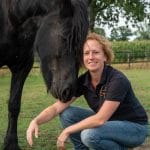 Title: How to get horses’ ‘consent’ in coaching?
Title: How to get horses’ ‘consent’ in coaching?
Abstract: When working with horses in the context of coaching or leadership development, how do you know whether or not you have their consent? To me as a coach, the answer to that question is a core essence.
A horse is a horse, a flight animal, living in a herd. Hence they have specific behaviour, specific perceptions, specific physical and psychological needs.
A coach is a human being. Human beings try to find their way in dealing with opportunities and challenges of the reality they live in. Hence they have specific behaviour, specific perceptions, specific physical and psychological needs.
I believe that coaching with the consent of horses can only work if the coach is both a trained coach and trained in working with horses in a respectful way, based on sound knowledge of what horses need by nature, so that their well-being can be maximally guaranteed.
In this workshop I explain my starting point regarding coaching with the support of horses: I don’t regard the horse to be a ‘mirror’. That view opens up to too much interpretation, and feels like reducing the horse to a mere instrument in a coaching session. To me, the horse’s behaviour works as a catalyst: by being who they are, and by doing what they do, horses invite people to explore what they as humans can do to tackle their challenges.
The role of the coach as a facilitator of this process, is to make sure that mental and physical safety for horse(s) and human(s) are continuously taken care of.
Bio: Wendy Van den Bulck works as a horse-assisted, solution-focused coach and trainer. Her focus is on leadership and communication. She is based in the north of Belgium, owning a centre with 11 horses and the infrastructure to enable individual coachings and team coachings all year round
Her expertise is coaching people who are so passionate about their job that they (risk to) lose themselves in it:
- Researchers who, in order to grow as scientists, have to expand their group and thus end up in a people management role in which they do not always feel comfortable;
- Doctors, psychologists, therapists,… and also veterinarians,… struggling to find a healthy balance between caring for others and caring for themselves;
- People in a management role who feel like having to be ‘the spider in the web’ that has to keep all the threads together
Insights from natural horse behaviour and an experiential approach through working with the horses are particularly helpful in guiding people to new insights and new habits.
In 2019 she wrote her first book with a solution focused approach, in English (“Connective Clarity. When Horses Invite You to Take up Authentic, Solution Focused Leadership”) and in Dutch (“Verbindende Duidelijkheid. Als paarden je uitnodigen tot authentiek, oplossingsgericht leiderschap”).


